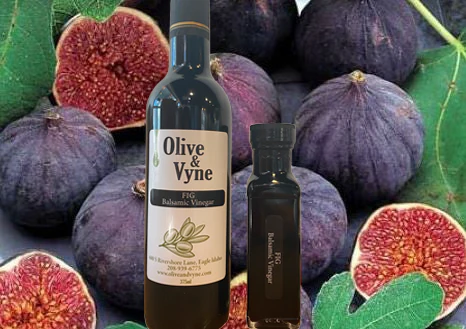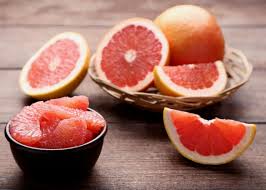Balsamic vinegar is healthy due to its low calories and antioxidants, benefiting heart health and digestion, but should be used in moderation.
In this article, we’ll explore the benefits, uses, and potential side effects of balsamic vinegar in a simple, clear way.
What is Balsamic Vinegar?

Balsamic vinegar is a dark, flavorful vinegar crafted from grape must, which includes freshly crushed grapes with skins, seeds, and stems. Traditionally aged in wooden barrels for years, it gains a deep, complex flavor and a slightly sweet finish. Originating in Italy, balsamic vinegar has become a culinary favorite worldwide, prized not only for its unique taste but also for its potential health benefits, including antioxidant and digestive properties.
Health Benefits of Balsamic Vinegar:
Low in Calories:
Balsamic vinegar is a low-calorie condiment, offering only around 14 calories per tablespoon. This makes it an excellent choice for those who want to add flavor without consuming too many calories. Using it as a dressing or marinade enhances meals without affecting calorie intake significantly, making it a popular choice for people aiming to lose weight or maintain a healthy diet.
Contains Antioxidants:
Balsamic vinegar is rich in antioxidants, which help neutralize harmful free radicals in the body. These antioxidants, especially polyphenols, are beneficial for overall health, as they protect cells from damage. By reducing oxidative stress, balsamic vinegar may help slow aging and decrease the risk of chronic diseases linked to cell damage, making it a powerful addition to a balanced diet.
May Support Heart Health:
The antioxidants in balsamic vinegar, particularly polyphenols, may support cardiovascular health by reducing cholesterol and protecting blood vessels. These polyphenols can improve blood circulation and potentially lower blood pressure, contributing to a healthier heart. Regular consumption of balsamic vinegar in moderation may provide long-term benefits to heart health and overall wellness.
Also read: What Is The Sacramento Native American Health Center – A Complete Guide!
Helps with Blood Sugar Control:
Balsamic vinegar has a low glycemic index, meaning it doesn’t cause a sharp rise in blood sugar. Studies indicate that it can help stabilize blood sugar after meals, making it a good choice for those with diabetes or people who want to manage their energy levels better. Including it in meals can support more balanced blood sugar throughout the day.
Promotes Healthy Digestion:
Acetic acid, the main component of balsamic vinegar, promotes healthy digestion by encouraging the growth of beneficial gut bacteria. This helps balance gut flora, which is essential for a well-functioning digestive system. A balanced digestive system can improve nutrient absorption and support overall gut health, making balsamic vinegar a valuable addition to the diet.
May Aid in Weight Loss:
Using balsamic vinegar can add a burst of flavor to meals without added calories. It also helps you feel full for longer, reducing the likelihood of overeating. This combination of flavor enhancement and satiety makes it an ideal choice for those looking to control their weight. Substituting high-calorie dressings with balsamic vinegar can be a simple, effective way to reduce calorie intake.
Natural Pain Reliever:
Historically, balsamic vinegar has been used in Italian folk medicine as a natural remedy for minor aches and pains. While scientific research on this benefit is limited, some people find it helpful due to its potential anti-inflammatory properties. Its traditional use for pain relief continues, highlighting balsamic vinegar’s versatility beyond its culinary applications.
How to Use Balsamic Vinegar in Your Diet:

Salad Dressings:
Balsamic vinegar is a popular choice for salad dressings because of its tangy, slightly sweet flavor. When paired with olive oil, it creates a simple, healthy dressing that enhances fresh greens without adding too many calories. You can add herbs, salt, and pepper for additional flavor, making this a versatile option for a variety of salads and vegetables.
Marinades for Meat and Vegetables:
Using balsamic vinegar as a marinade can enrich meats and vegetables with a deep, slightly sweet flavor. It tenderizes proteins and infuses vegetables with taste, offering a low-calorie alternative to heavier sauces. Marinating with balsamic vinegar, especially when mixed with olive oil and spices, helps create a tasty, healthy dish with fewer calories and rich flavor.
As a Drizzle for Fruits and Cheese:
Drizzling balsamic vinegar over fruits like strawberries or a slice of cheese enhances their natural flavors with a unique, tangy twist. This pairing combines sweet and savory notes, offering a refreshing, low-calorie snack or appetizer. The acidity of balsamic vinegar complements the sweetness of fruit and the richness of cheese, creating a delicious and nutritious treat.
Also read: Albany Area Primary Health Care – A Complete Guide!
Adding to Soups and Stews:
A splash of balsamic vinegar added toward the end of cooking can boost the flavor of soups and stews, bringing out a richness and depth in savory dishes. It balances heavier flavors and adds a hint of acidity, which can enhance the overall taste. This is a simple, healthy way to elevate the flavor profile of warm dishes like tomato soup or beef stew.
Types of Balsamic Vinegar and Their Differences:
Traditional Balsamic Vinegar:
Traditional balsamic vinegar undergoes a lengthy aging process, often ranging from 12 to 25 years or more, in wooden barrels. This aging results in a thick, syrupy consistency and rich, complex flavor. Known for its quality, traditional balsamic is typically used as a finishing touch, drizzled over gourmet dishes like cheeses, fruits, or desserts, where its intense flavor can be fully appreciated.
Commercial Balsamic Vinegar:
Commercial balsamic vinegar is a more accessible and budget-friendly option, aged for a shorter time and sometimes blended with additives like caramel or thickeners to replicate the richness of traditional balsamic. While its flavor is less intense, it’s versatile and well-suited for everyday use, such as in salad dressings, marinades, or sauces, adding a tangy sweetness to various recipes.
White Balsamic Vinegar:

White balsamic vinegar, made from white grapes, is processed to maintain a lighter color and a milder taste. Its subtle flavor makes it ideal for dishes where a darker vinegar might overpower or alter the appearance, such as light-colored sauces, dressings, or salads. White balsamic is a versatile ingredient that enhances flavors without significantly changing the dish’s look or taste.
Are There Any Side Effects of Balsamic Vinegar?
Acidic Nature:
Balsamic vinegar is highly acidic, which can cause stomach discomfort, particularly for individuals with acid reflux or sensitive stomachs. This acidity may lead to symptoms such as heartburn, bloating, or indigestion when consumed in excess. If you experience these issues, it’s wise to limit your intake of balsamic vinegar or consume it with other foods to help buffer its effects and reduce the likelihood of irritation in your digestive system.
Potential for Tooth Erosion:
The acidic nature of balsamic vinegar can contribute to tooth erosion if consumed in large amounts over time. Excessive acidity may weaken tooth enamel, increasing the risk of sensitivity and decay. To minimize the risk of dental issues, consider rinsing your mouth with water after consuming balsamic vinegar. This practice can help neutralize acidity and protect your teeth from potential harm while still allowing you to enjoy its flavor.
High in Sugar:
Balsamic vinegar contains natural sugars, which can be a concern for individuals monitoring their sugar intake or those with dietary restrictions. While these sugars are not typically harmful, excessive consumption may lead to increased blood sugar levels, particularly in people with diabetes. It’s important to be mindful of portion sizes and include balsamic vinegar in moderation to ensure that it fits within your overall dietary goals and health needs.
Tips for Adding Balsamic Vinegar to Your Diet Safely:
- Start with small amounts to see how your body reacts.
- Use it as a replacement for higher-calorie sauces or dressings.
- Try combining it with olive oil for added heart health benefits.
- Store it in a cool, dark place to maintain its quality and flavor.
FAQ’s
1. What are the health benefits of balsamic vinegar?
Balsamic vinegar is low in calories, rich in antioxidants, may support heart health, helps with blood sugar control, promotes healthy digestion, and can aid in weight loss.
2. Can balsamic vinegar help with digestion?
Yes, the acetic acid in balsamic vinegar promotes the growth of beneficial gut bacteria, aiding in digestion and nutrient absorption.
3. Are there any side effects of consuming balsamic vinegar?
Balsamic vinegar can cause stomach discomfort for some people due to its acidity, and excessive consumption may lead to tooth erosion and increased sugar levels.
4. How can I use balsamic vinegar in my meals?
You can use balsamic vinegar in salad dressings, marinades, drizzles over fruits and cheese, or added to soups and stews to enhance flavor.
5. Is all balsamic vinegar the same?
No, there are different types of balsamic vinegar, including traditional, commercial, and white balsamic vinegar, each varying in flavor, aging process, and uses.
Conclusion
In conclusion, balsamic vinegar offers numerous health benefits, including low calories, antioxidant properties, and potential support for heart health and digestion. While it can be a flavorful addition to various dishes, moderation is key due to its acidic nature and sugar content, which may affect sensitive individuals. Incorporating balsamic vinegar into your diet can enhance flavor while promoting overall health, making it a versatile choice for culinary enthusiasts.




